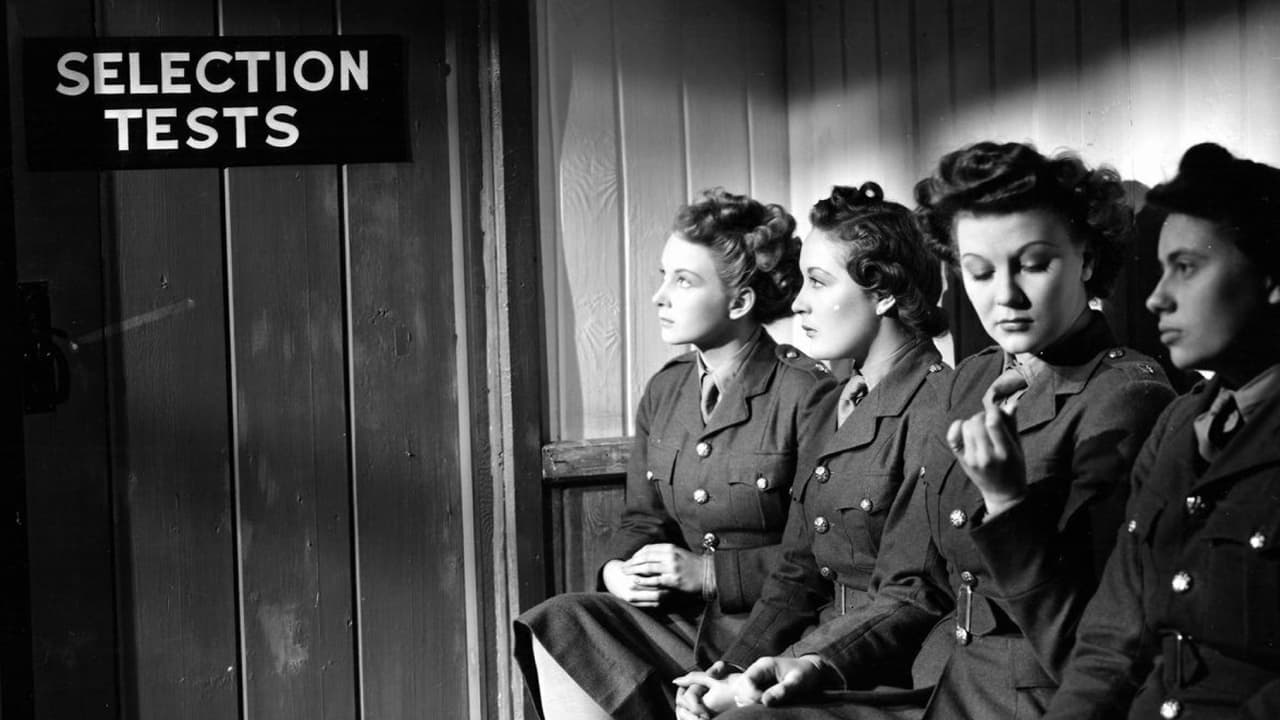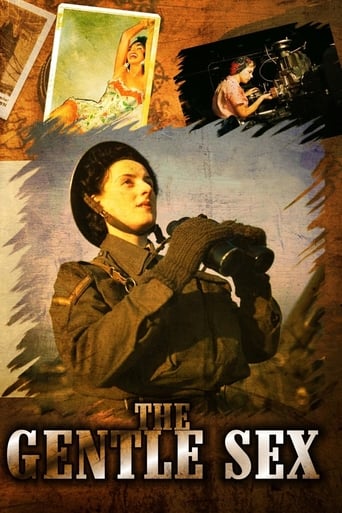

I am a great aficionado of 1940s -50s black and white movies, but I am afraid this one seemed like a lead balloon. The premise was interesting - Leslie Howard as an almost God - like figure looking down on the milling crowd and selecting his characters -and I settled back for an interesting story to unfold. I waited in vain. Not only did very little happen (which can still mean an excellent movie)but there was very little character development. I ended up with the feeling that women were basically rather boring, spineless creatures, which is surely the antithesis of what the film was trying to achieve? I've seen so many films from this era and later where we see women as they really are, innovative, brave,tender, funny,witty. It's the first time I've seen Lilli Palmer as a quiet colourless creature. There were endless opportunities for fun/tragedy/drama,etc, which just didn't materialise. Even the music hall song was flat and stale. Perhaps in its time it might have worked as a propaganda film purely to show that women can be successful in the army but apart from this I'm afraid it was a non -starter and I gave it the thumbs down.
... View MoreOkay, it's 1943 and presumably there's no indication of when the war will end, no sign of any breakthrough and D-Day is still a good twelve months away so why not shoot a little propaganda-lite; a sort of visual blend of 'The Lady' and 'Women's Companion' magazines; a little about food, a little about clothes, a little about men, etc. At the time it was probably a minor success; the viewer is drawn gently into it via Lesley Howard's voice-over as he 'selects' a group of women who have all 'joined up' - in this case the A.T.S - and then permits us to follow them on their train journey to the camp where they will undergo basic training. As a time-capsule it is fascinating because for the viewer in 2007 it is like travelling to Atlantis or one of those lost civilizations that so beguiled Professor Fawcett. Was there EVER an England like this? Clearly there was and Tony Blair couldn't rest until he'd obliterated all traces of it. The cast are all competent and although a handful - Joan Greenwood, Rosamund John, John Laurie, Lili Palmer, Jimmy Hanley - continued to work on stage and/or screen none of them really achieved what today we would call Super stardom. It's a modest effort, quintessentially English, worth watching on TV - which is where I saw it - but not worth searching for on DVD.
... View MoreThinly disguised World War II propaganda, it nevertheless effectively gets it message across, however as a film for satisfying viewing, it does not quite work. The main problem is that there is too little drama driving the film, however the characters are also not developed very well as individuals, which makes it hard to keep track of who is who, and it makes it hard to care for any of them. The philosophies the film brings up are rather wishy-washy, but not all is bad here. The material is edited all quite well together, and Leslie Howard, who is seen from behind in early shots, narrates the movie quite well: he has such an easy-to-listen-to voice. So, this is not quite terrible viewing, but neither it is a good film by any stretch.
... View MoreI imagine this film was originally made as a tool to inform the contemporary public of what war work for those women who enlisted would actually consist; as it happens, to the modern descendants of those largely-forgotten ATS volunteers, it performs the same service.The answer, apparently, is that they underwent quasi-military training in order to fit them to take over auxiliary roles performed in pace-time by men, thus releasing more soldiers for actual combat: they served as mechanics and drivers, tea-orderlies and telephonists, and, in a rare show of belligerence, assisted as anti-aircraft gunners. I must confess to never being quite clear how the drilling and marching fitted into all this, save to inculcate a general sense of military identity!'The Gentle Sex' is basically a documentary about these women's lives and training, and there is very little plot as such. There is one dance and a couple of romances, a marathon drive in which no-one falls asleep at the wheel and no-one is left behind, and a bombing raid in which none of the characters are hurt. The women are drawn from a cross-section of types: bossy Joan and gentle Scots Maggie, the pampered baby and the damaged refugee, the sharp shop-girl and the officer's daughter.Perhaps the most striking moment is when the latter, Anne, goes off into an artificial-sounding speech about how her generation are the first in history to be truly liberated and serve alongside men that had my hackles rising instinctively with its too-obvious message... and then she is quietly deflated by her fiancé's mother mentioning how she herself met her husband after she was wounded while on service at the front in the previous war, and still has the piece of shrapnel to show for it! It's just as much propaganda as the other, of course, but it's an astute acknowledgement and subversion of the film's own potentially preachy effect.The only reason I initially sat down to watch this picture was because of its curiosity status as 'Leslie Howard's last film', although his on-screen appearance is limited to supplying the voice of the sceptical but finally won-over 'mere male observer' who provides the linking commentary. I can't honestly recommend it as a gripping thriller, and it comes to emotional life only in a couple of places: but it remains what it was made to be, an informative and somewhat idealised glimpse into women's military contribution to the Second World War, in a branch of the service often eclipsed by the WRNS and the WAAF. I am reminded -- in a not uncomplimentary comparison -- of the well-presented British Transport Films documentaries.Worth seeing, but don't expect too much.
... View More